What is Things + Time?
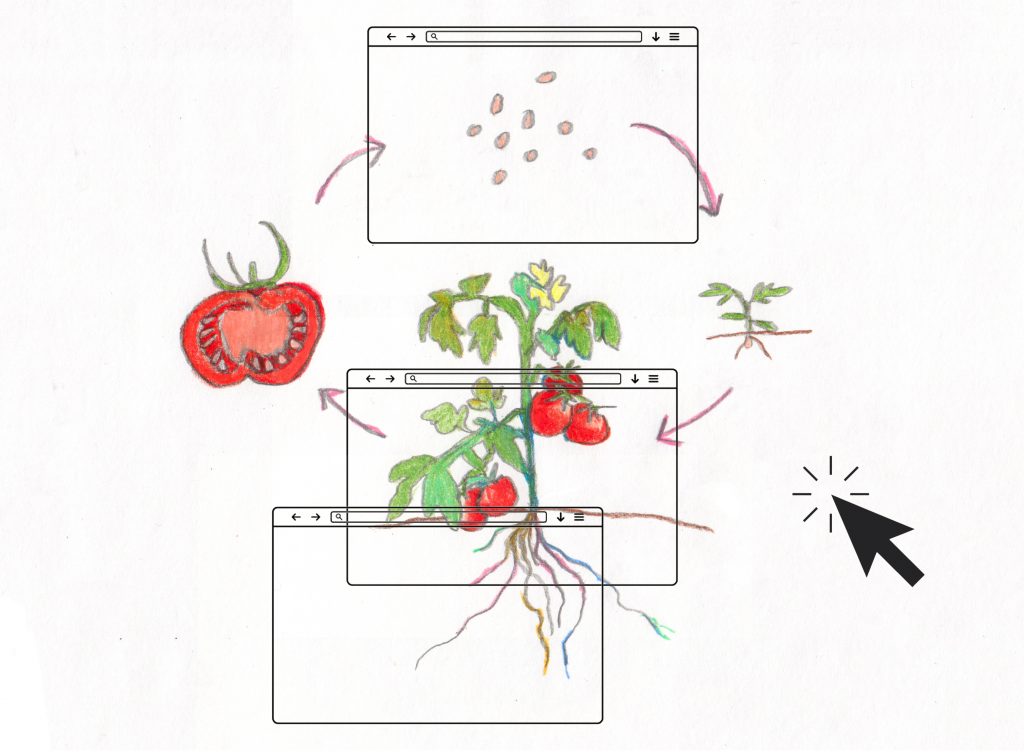
If the Cyber Love Hotel is a garden, as Liane Décary-Chen described it in the previous blogpost, then Things + Time (T+T) is the means by which the garden’s seeds are saved – so that they may be planted again, their yield unbound by time and space. Nourishment preserved, magnified, made exponential.
But to move away from metaphor, Things + Time is an open-source digital exhibition and archiving database. The project is home to digitized objects and artworks that can be annotated with information on their traits, uses, and other unique data.
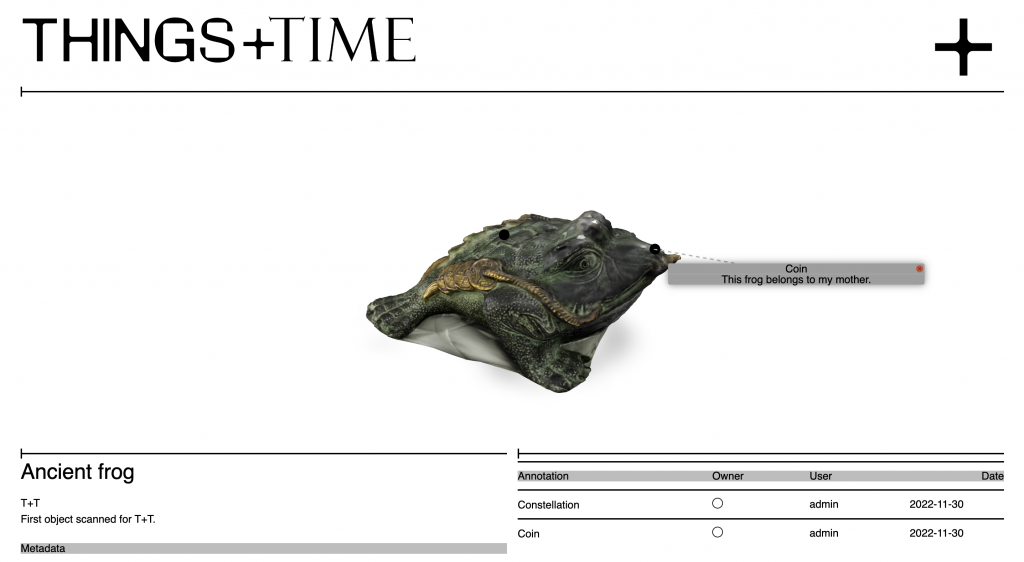
The project’s cultivation began in January 2022, and with support from the Canada Council of the Arts, members of the Cyber Love Hotel would spend the next year bringing it to fruition. Born out of the pandemic-driven loss of public and cultural space and a DIY ethos, T+T offers an antidote to the kind of forgetting that traditional archival practices allow for.
T+T takes up critical archiving, which interrogates archival paradigms that fail to prioritize accessibility, and leave behind marginalized communities, whose objects wait in archival purgatory: backlog. In this way, T+T aims to be anti-racist and anti-colonial.
As Archival Director Prakash Krishnan, explains, T+T explores how ‘community dialogical intervention’ might germinate new forms of collective participation “through a democratization of traditional archival gatekeeping.” It accounts for the artist’s agency in archival processes, while moving beyond the individual, towards the relational, the communal. T+T reminds us: these are our objects, these are our stories – who better to keep them, to share them, than us?
The platform allows artists and community members to exhibit 3D scans of their work, which can then be accompanied by text-, photo-, video-, and/or audio-based annotations. A sculptor can archive a piece, attach meaning to its textures in the margins; a musician can scan a chair they wrote a song in; a textile artist could annotate a single thread in a tapestry; a poet could archive a note written on a napkin. You could archive a family heirloom, or a gift from a lover. Virtually any object can be preserved.
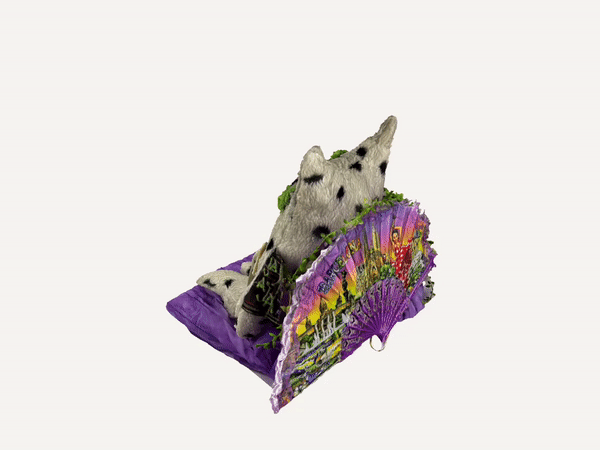
The code at the root of the project is open-source, and forkable – meaning that it can be pried apart, its pieces providing the foundation for some other software. Under capitalist modes, forking is disparaged for the threat it poses to competition; at T+T, it is encouraged. It is our hope that others will take what we build, carve out their own tools, and wield them with care. T+T seeks to move away from reliance on bigtech, and contribute to the global community of people building digital systems, centered around care, relationships, symbiosis.
In November, T+T put out an open call for a 6-week residency offered to emerging artists in Tio’tia:ke/Montreal during January and February. The ten artists selected have participated in a series of workshops, with topics ranging from archiving to project management, to 3D scanning and editing – all with curricula developed in dialogue with the artists. Their works now populate the platform as it takes its first steps. Like the culture at Cyber Love, the residency has been relationship-oriented, rather than task-oriented; its outcomes measured more by what the artist has learned and what the community has gained than what the individual has produced.
Like seeds and the fruit they eventually bear, culture nourishes us. Its yield is joy, connection, avenues for grief. We must protect it, and the objects that encapsulate it, from gentrification, commodification, and dispossession. T+T invites you to reimagine traditional archival practice, to upend time as we understand it, tether things in and outside of it, to preserve our most precious objects so they can be shared.
We’re growing a digital garden – the fruits of this labour we hope to harvest in community with one another.
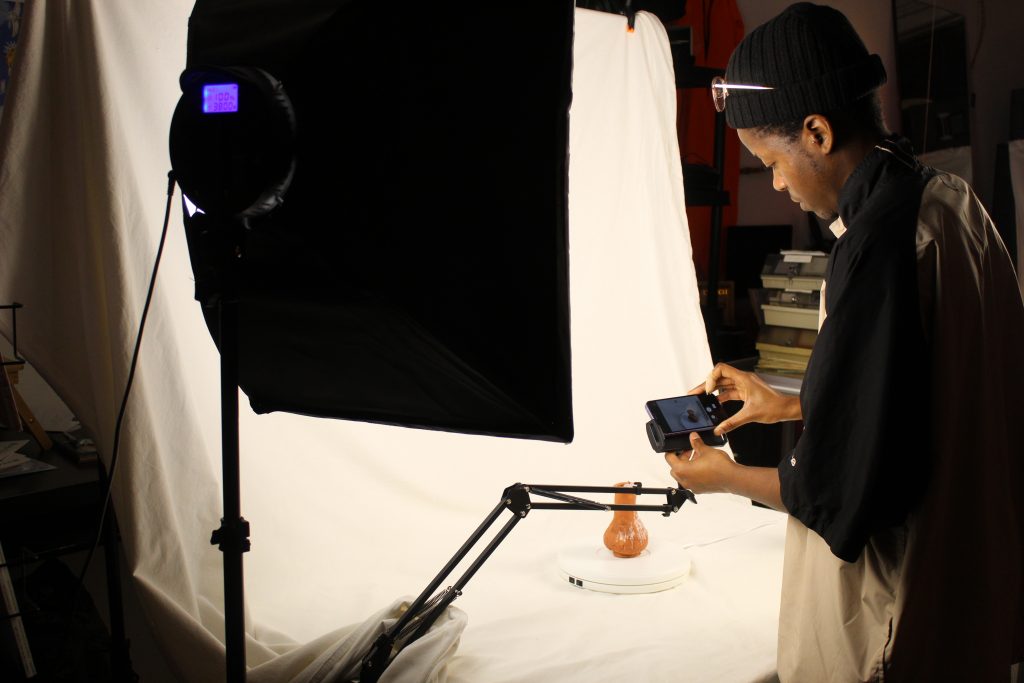
How Do You Start a Community Space? Interview w/ L. on Founding CyberLove
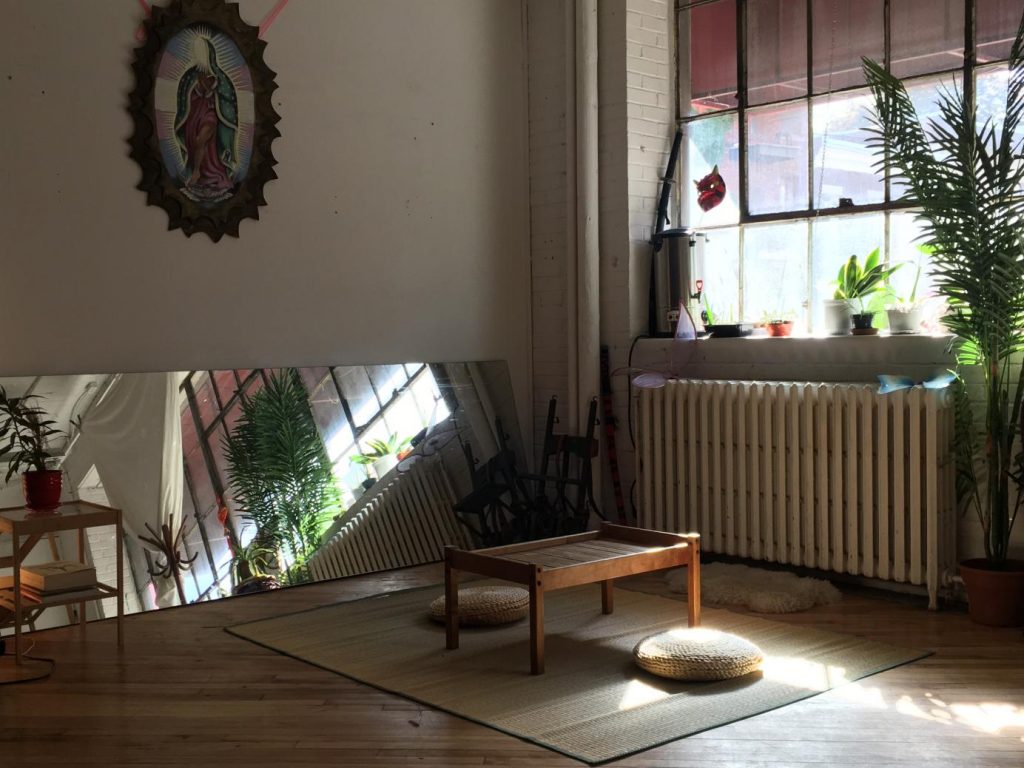
L. founded the Cyber Love Hotel in 2021. It is a young space, in a state of generative motion. Members, collaborators, and guests flow through the studio, making it a quasi-professional, quasi-social, always fertile environment. The majority of regular members are themselves hybrid actors, working across creative, commercial, and technological fields. The Cyber Love Hotel is knit together by an interest in symbiotic, loving community made robust and extensive through skill sharing and digital tools.
Since April 2022, many members of the Cyber Love Hotel have come together on a large-scale project, Things + Time, which will involve creating a digital archival tool for 3D scans and mentoring emerging artists in tools used for 3D scanning, documentation, and archiving. This is the first in a series of entries speaking to members involved in Things + Time, with the aim to gather insight and pass teachable skills. Across these interviews and guides, Cyber Love Hotel members hope to offer templates, tools, and words of guidance for any individuals interested in building community organizational structures, developing outreach and educational programs, and learning about new technologies through an artist’ focus.

What led to you acquiring the studio?
It began after I completed a residency, and realized just how much having space made a difference. During COVID, we lost so many spaces. We had nowhere to go. And so I thought—we need space right now.
Who is the ‘we’ in we need space?
People who I feel in community with, whether I know them personally or not. Anyone who is in a similar position- creative, artistic, anyone who has some tools but not enough. Early career artists, anyone marginalized, people interested in tech and using it for good. Having being neuro-divergent and queer has affected where I can go, be, and do things that interest me and which enrich my life, where I can live authentically.
What were your goals in starting the space?
I started the space as a kind of DIY rapid response. I felt that Montreal needed a community space focused on digital tools of technology, that could host initiatives, and potentially be a center for mutual aid. I knew that if I waited for grants, it could take ages, and grants are never guaranteed. I felt like we needed space as soon as possible, so I made that a priority. We’re still not incorporated, we still aren’t fully set up administratively or are properly documented, but we have the space.
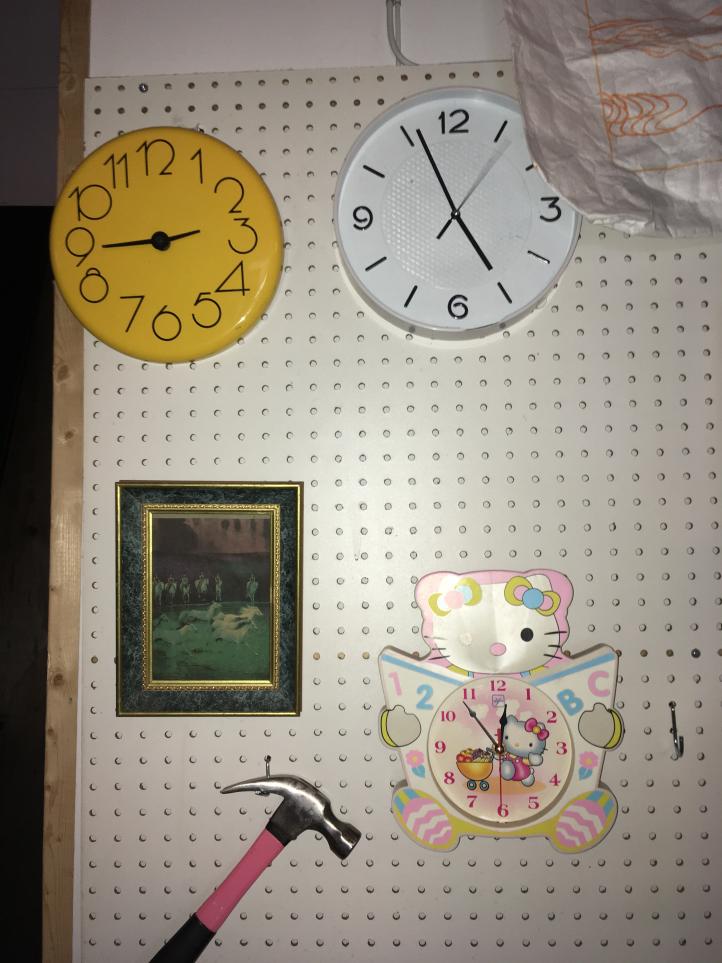
What factors had to be in place for you to be able to found the space?
Well, primarily, for transparency and also because this was fundamental, I’ve been able to fall back on a lot of family support, financial and otherwise. I was stable in my job and I had the financial legroom, enough so that I felt like I could put the extra towards something that would benefit not just me but everyone I’m in community with. That felt important. Things also had to fall a specific way to make me feel certain that this was possible. That moment was fleeting, but the lease had already been signed and the project already started. After that, it’s all community support.
What are the qualities that you were looking for in a space, particularly one that you could leave and return to?
Something that continues to be open to newcomers, but that isn’t a huge organization. Something that stays flexible, mobile, and keeps a DIY ethic. It’s important for me that we stay ethically aligned with anti-capitalism and decolonization by having ongoing conversations about what it means to uphold those principles and letting go of expectations of what an organization should be like.
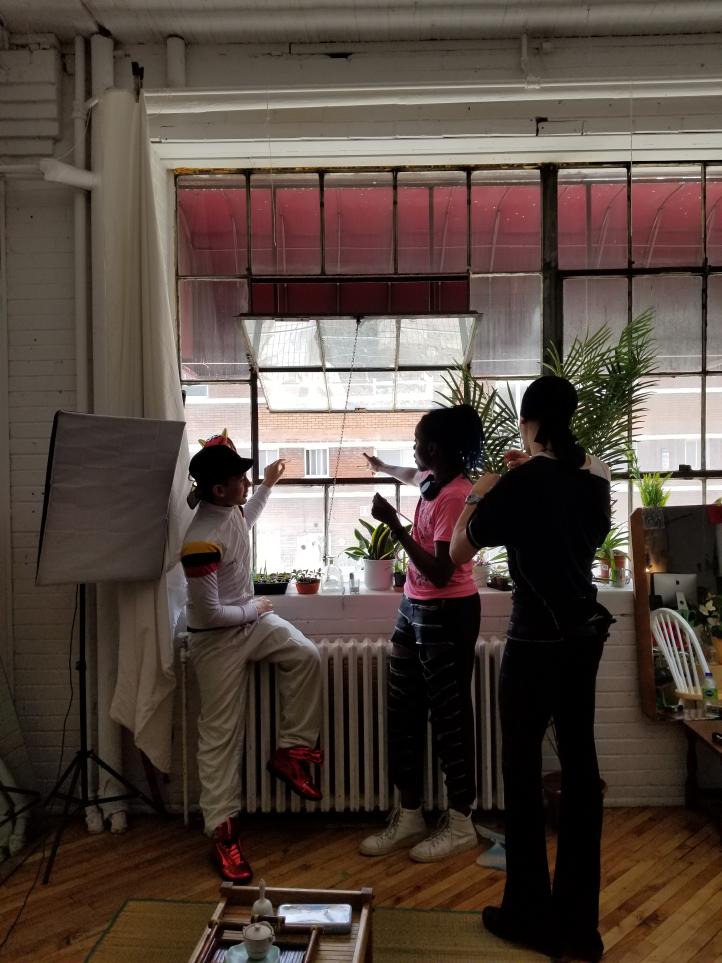
How did you begin to bring people into the space? How would you like to continue to find collaborators and new members?
I began with my immediate circle, gauging the interest of those in my direct proximity—friends, people I’d previously worked with. The initial offering was just space. It was organic and messy, a natural expansion outwards from friends and my network. This was important in COVID, too, when we were paying very close attention to who we were spending time with. So now it’s built on friendship and trust, and it makes sense to maintain that as a foundation for growth.
For the moment, this is just internal growth, and we’re building up to be able to offer services which will be more outwards-facing and public, which of course we aim to make as accessible as possible. This is the Cyber Love Hotel—we’re expanding based on love. I approach people that I love and want to do things with.
How do you understand your role in this space?
Well, practically, I’m the person who keeps the lights on. I also finance it when it needs financing, and deal with immediate needs.
But it also feels like a garden I help keep alive. Garden of things, garden of tools, garden of vibes.
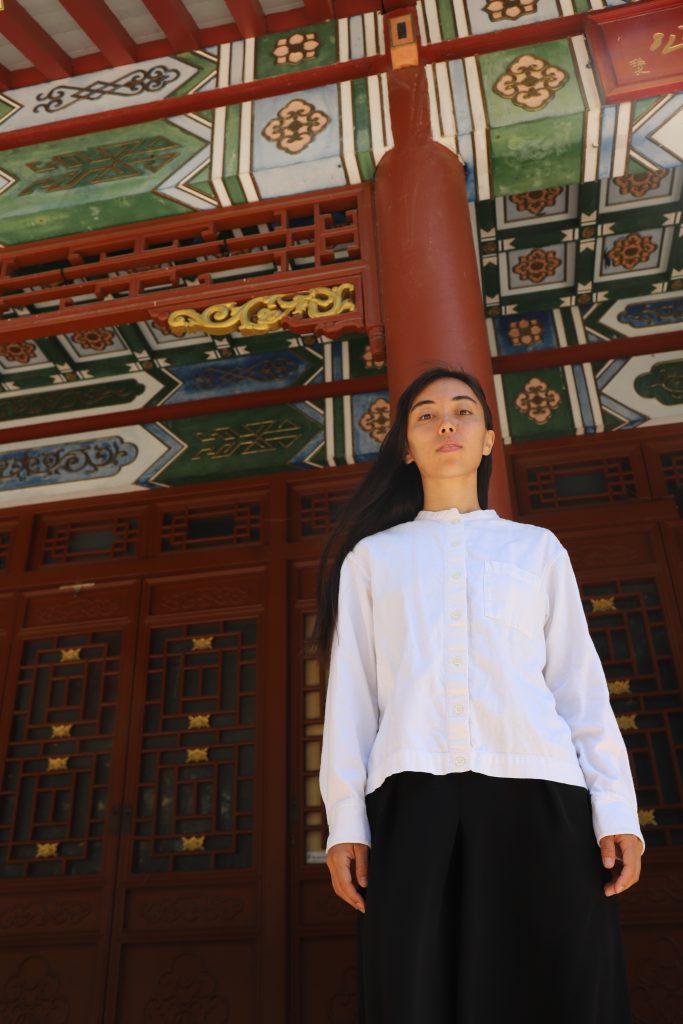
What are you hoping the space will be able to offer people? And what do you hope people will bring to it?
What I hope it will offer people are some pointers towards the fact that they can do whatever they want, and towards all the possibilities that are open to them. To expand horizons, and to help people come unstuck, and to understand that there are so many options available to them at any time, so many paths. We need to learn how to build options for ourselves, which is what I hope we’re building.
As to what people might offer- I really hope people are thinking about communities, and contribution, and how community care and mutual aid can be integrated into their lives, beyond just donations. I would love the space to be a jumping-off point for people to become involved in community initiatives. More specifically, I also hope that the Cyber Love Hotel will offer a space for people to learn about technology and ideate what futures they could make either using or resisting it.
How do you understand community?
I would just say various networks of personal relationships that overlap with care and goodwill.
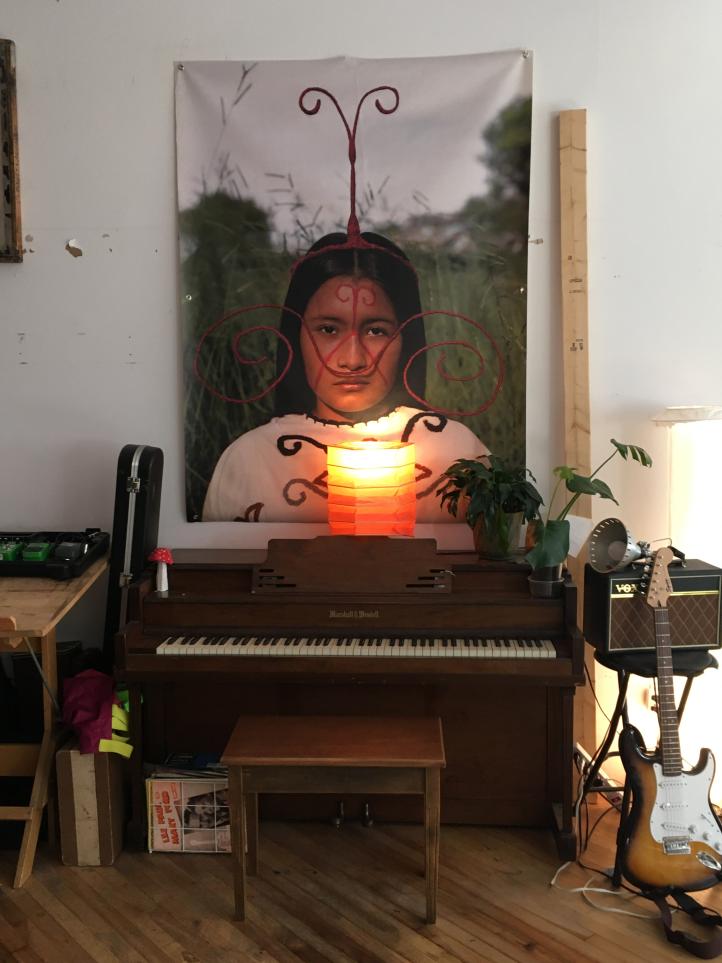
Liane Décary-Chen is a creative technologist and community organizer working in digital media and cultural intervention. She is interested in creating work that grows inside the digital systems she seeks to dissect. Her current practice is informed by her past work in wearable electronics, interactive documentary filmmaking, participatory game making, and tech education. Décary-Chen now co-runs the Cyber Love Hotel in Montreal and is project lead of Things+Time, a community archival project.